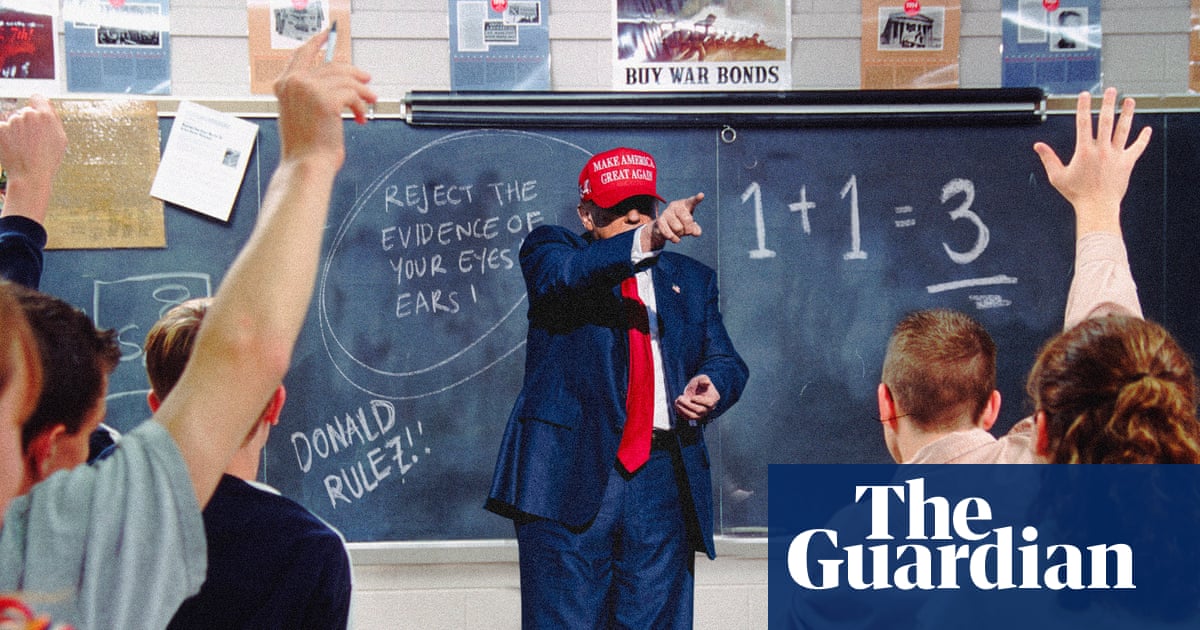
The recent firing of Erika McEntarfer, the Bureau of Labor Statistics (BLS) commissioner, has ignited significant debate about the methods employed by former President Donald Trump in his bid to control narratives and dominate policy frameworks. Scholars and former officials suggest that this move exemplifies a broader strategy of challenging established facts and institutions. Trump’s alleged penchant for rewriting history and squashing dissent has come under scrutiny, as critics claim these actions showcase hallmarks of authoritarianism.
The Firing That Sparked Controversy
In August, Erika McEntarfer was abruptly dismissed from her role as BLS commissioner. This occurred shortly after she released economic data contradicting Trump’s claims of a robust economy. The president dismissed the findings as “totally rigged” without providing evidence, leading to widespread criticism from economists and legal scholars alike. Peter Shane, a constitutional law professor at New York University, noted, “‘Rigged’ in Trump-speak just means ‘unfavorable to Trump’. This firing sends a message to all government officials that any unflattering information could jeopardize their careers.”
Replacing Experts with Loyalists
Following McEntarfer’s termination, Trump nominated EJ Antoni, an economist from the right-leaning Heritage Foundation, to replace her. Critics argue this choice aligns with Trump’s history of appointing loyalists who support his narrative rather than prioritizing independently verified facts. Such appointments have allegedly led to a concerning erosion of institutional integrity across multiple federal agencies. From the Environmental Protection Agency (EPA) to the Department of Justice, officials loyal to Trump have reportedly promoted disinformation to align with political aims.
Revising History and Challenging Science
Experts point to Trump’s skepticism toward climate change and vaccines as examples of his disregard for widely accepted science. For instance, the EPA has recently attempted to rescind a 2009 endangerment finding that underscored regulatory efforts to combat climate change. As part of what critics term “an all-out assault on clean energy,” the Trump administration has doubled down on expanding fossil fuels over wind and solar energy.
Similarly, vaccine policies have come under politicized scrutiny. Robert F. Kennedy Jr., appointed by Trump as health secretary, has attempted to block funding for mRNA technology used in COVID-19 vaccines. Health experts have expressed alarm, emphasizing that such policies undermine public trust in critical healthcare initiatives.
Legal Challenges and the Politicization of Justice
The justice system has also seen increased criticism under Trump, particularly regarding investigations targeting his perceived political adversaries. Tulsi Gabbard, Trump’s former director of national intelligence, alleges that President Obama engaged in a “treasonous conspiracy” during the 2016 investigation into Russian election interference. Despite bipartisan reports affirming Russian interference to favor Trump, Trump loyalists have reportedly advanced unsubstantiated claims, casting doubt on the integrity of these inquiries.
The Broader Implications
Many experts argue that Trump’s alleged assault on truth has long-term implications for American democracy. Julian Zelizer, a historian at Princeton, warns, “While many presidents have been critical of economic data, this is a new level of hostility. A culture of fear is being created where facts can be overlooked, jeopardizing innovation and progress.”
Indeed, the danger of ignoring facts could stifle advancements in fields like climate science, medicine, and technology. Michael Gerrard, an expert in environmental law at Columbia University, notes, “The United States achieved its global standing by embracing scientific truths. Moving away from that trajectory is a direct path to mediocrity.”
A Renewed Focus on Transparency
In the wake of these controversies, there is a growing demand for stricter governmental transparency and accountability. The appointment of impartial experts at key agencies and the protection of whistleblowers may help restore public trust in institutions that have faced credibility issues under politicized leadership.
Related Product Recommendation
For individuals passionate about standing up for facts and fighting misinformation, consider supporting platforms like FactCheck.org, an independent nonprofit that promotes accountability in public discourse. Staying informed and spreading accurate information remains key to protecting the integrity of truth.






